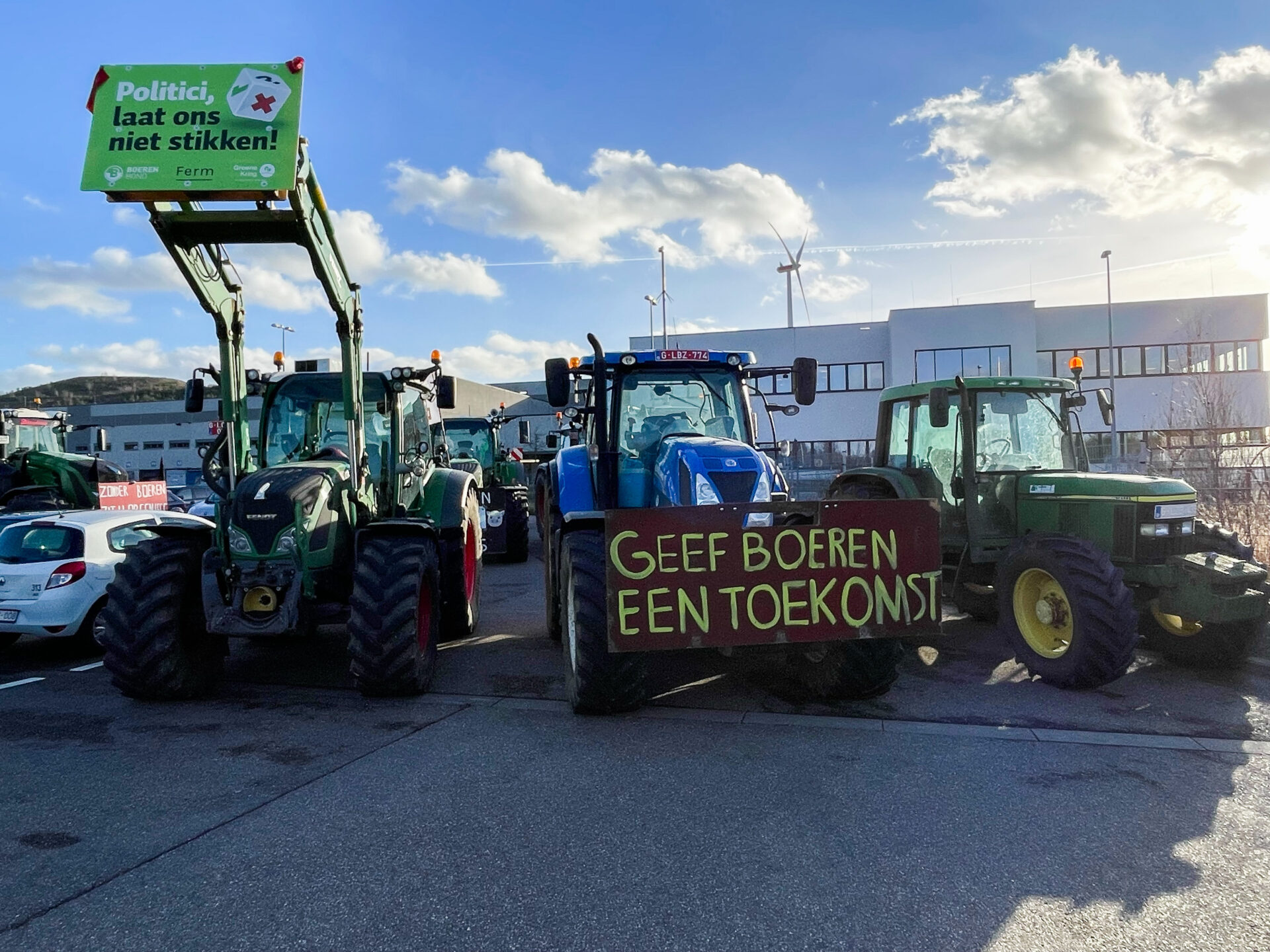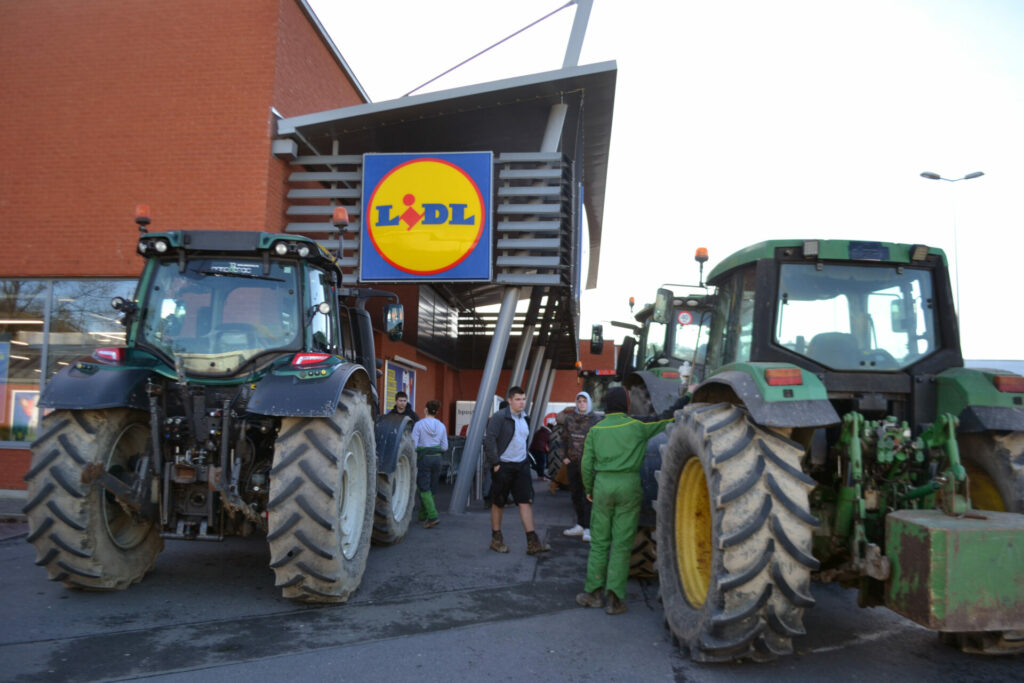Whilst the tractors that filled Brussels on Thursday have withdrawn from the capital, some groups of Belgian farmers are persisting with more targeted blocks, preventing access to ports and distribution centres, raising fears of empty supermarket shelves.
Until now, the farmers' protests have primarily brought disruption to traffic and public transport. But some sectors are feeling the impact as their supply chains are blocked – especially as some agriculture organisations shift their focus to supermarket distribution centres.
Thursday saw a major turnout at the main protest in Brussels' European Quarter, timed to take place as EU leaders convened to discuss a support package for Ukraine. The scale of the mobilisation did lead to agriculture representatives meeting with Belgian Prime Minister Alexander De Croo and the presidents of the European Commission and Parliament. But despite concessions on some environmental clauses of the EU's Common Agricultural Policy, farmers were dissatisfied and vowed to continue their protest.
"Now we will block the country," one organisation declared. Though with tractors dissipated and many returned home having made their point, those that continue actions are now aiming at supermarkets. Dissatisfied with the outcome of the meeting with EU leaders, the president of the French-speaking FJA (young farmers' federation) assured that the "determination was even greater" to protest.
Tijs Boelens, spokesperson for the Flemish Farmers' Forum, said: "This is how we hit the groups that leave us out in the cold. A supermarket chain that drives for the lowest prices: that cuts into our skin."
The situation in supermarkets
The first actions at distribution centres started on Monday. These depots supply thousands of supermarkets in Belgium.
Aldi's distribution centre in Villeroux (on the outskirts of Bastogne) was blocked. To avoid fresh goods going to waste, the retailer tried to set up an additional distribution centre on a nearby industrial estate in Molinfaing (Neufchâteau). Farmers then blocked this site. By Wednesday, Aldi said the action had led to shortages of certain products in stores.
Colruyt warehouses at Ghislenghien and Ollignies were still inaccessible to trucks on Friday, but its Dassenveld distribution centre in Halle should become accessible again soon following protestor consultation with Colruyt on Thursday evening. Only trucks with Belgian products will be allowed to pass.
"A lot of fresh food arrives at Dassenveld: we don't want that food to spoil. That's against our principles as farmers," one participant said.
The company is unsure how long these actions will last and stated that shelves will inevitably start to empty without fresh stock coming in. Whilst expressing sympathy for the concerns of Belgian farmers, Colruyt stated that it makes sure that "every link in the chain gets a fair price for its product or service" and that its lowest-price policy does not come at the expense of producers.
The company has previously come under strong criticism from farmers for buying up large areas of agricultural land.

Farmers enter the distribution centre of supermarket chain Lidl in Genk on Thursday. Credit: Belga/ Marc Dirix
Lidl's centre at Marche-en-Famenne and the Aldi centre at Villeroux are also still blocked, although trucks are being allowed to pick up goods for Food Banks.
The Delhaize distribution centre at Ninove (East Flanders) is also blocked; its site at Zellik (Flemish Brabant) was blocked overnight but is accessible again. "There is still enough stock, but it won't be long before customers will notice," a company spokesperson told Belga News Agency. "Especially when it comes to fresh fruit and vegetables, things move fast."
Other sectors affected
Other affected sectors include the port of Zeebrugge, which has been blocked for several days and where over 2,000 trucks now queuing. Some shipping companies are avoiding the Flemish ports as a result.
The governor of West Flanders Carl Decaluwé triggered the provincial contingency plan, with a growing number of companies in the area impacted. He will hold talks with farmers blocking the port on Friday. Police are warning of disruption and delays and are urging people to avoid the Zeebrugge area.
Related News
- 'Nothing changes. Now we block the country': Farmers defiant after EU talks 'failure'
- Farmers occupy the streets of Brussels' European Quarter (photos)
In Ghent, the site of steel giant ArcelorMittal ran into problems as the main access roads to the site were also blocked.
Farmers' groups have called on the government for concrete changes. The Flemish Government wants to focus on reducing regulation, price formation in the sector and legal certainty, Belga News Agency reported.

